Bad News About the U.S. Diesel Supply
Over the summer, the United States witnessed record fuel prices. But the elephant in the room wasn’t how much people were having to pay for regular unleaded gasoline, it was the possibility that the nation might run into diesel shortages going into the fall.
Stellantis Paying $300 Million in Emission Fines, Seeking Plea Deal
Stellantis has reportedly agreed to plead guilty to criminal conspiracy charges relating to emissions requirements on over 100,000 diesel-powered Ram and Jeep products sold in the United States. Fiat Chrysler Automobiles (FCA) was previously on the hook for $800 million in civil penalties over a so-called “defeat device” equipped to the automaker’s 3.0-liter turbo-diesel engine. Allegations began in 2017 as regulators were hunting for compliance violations in the wake of Volkswagen’s massive emissions scandal from a couple of years earlier.
Toyota's Hino Motors Confesses to Diesel Emissions Cheating [UPDATED]
A few years ago, you couldn’t sneeze in an elevator without it landing on at least one automotive executive in trouble for diesel emissions cheating. Following Volkswagen’s diesel emissions scandal in 2015, regulators around the globe smelled blood in the water and the feeding frenzy began. Diesel cars that were previously championed as the cleaner alternative in Europe were now public enemy number one. Manufacturers responsible for long-lasting engines with high efficiencies were subjected to enhanced scrutiny. It was something of a sooty witch hunt and has gradually lost steam as the world found new, more immediate things to be outraged with.
But that doesn’t mean nobody has been checking up on them. Hino Motors, Toyota’s truck and bus arm, has confessed that it caught itself cheating after launching an internal investigation into its North American operations. Apparently, some products that should have been subject to Japan’s 2016 emission regulations were not — among some other issues.
UK-Based BMW Police Cars Banned From Pursuits
While electric vehicles get the most press whenever they go up like a match, it’s important to remember that combustion vehicles pioneered burning themselves up back when the horse was still considered a viable transportation option. Things are better now of course, with flaming cars being primarily relegated for important riots, large-scale sporting events, and decoration along the West Side Highway. We can also add high-speed chases taking place in the United Kingdom to the list because there’s reportedly a bunch of BMW police vehicles that are giving new meaning to the term “heat.”
For the last few weeks, various departments scattered across the U.K. have been issuing advisements not to use certain diesel-powered vehicles in pursuits that exceed the speed limit. It’s a rather curious request, though one that’s allegedly tied to a serious incident from 2020 that killed Police Constable Nick Dumphreys.
NHTSA Investigating Ram's Diesel Pickups
The National Highway Traffic Safety Administration has opened an investigation into nearly 605,000 heavy-duty Ram trucks. A report from the regulator’s Office of Defects Investigation has tabulated 22 complaints from the 2019 and 2020 model years, all of which use 6.7-liter Cummins turbo diesel engines, spurring the NHTSA to launch a formal investigation. Complaints revolve around loss of motive power, with most incidents occurring above 25 mph and resulting in the “permanent disablement of the vehicle.”
While the public was not made aware of the investigation until Monday, the agency launched its probe last Thursday on October 14th. The goal will be to establish how widespread the presumed defect is, what exactly caused it, and any potential safety hazards relating to the issue. Some headway has already been made, however.
Torsus Praetorian 4X4 Off-Road Bus Updated
Torsus’ Praetorian, heavy-duty, off-road 4X4 buses, has announced a number of technical advances. These rugged off-road buses are made to cross some of the most inhospitable terrains on earth.
Jeep Farout Concept Rolls at Easter Jeep Safari
Farout, a new Jeep Gladiator concept vehicle for 2021, is an overlander built for four, thanks to the addition of an AT Overland Equipment Habitat truck topper. At 16-feet long and 7.5-feet tall, the pop top fully deployed takes about three minutes to set up.
QOTD: Big Wheels, Small Sidewall – Yes or No?
The debate rages on, whether 22-inch, 24-inch, even 26-inch or larger wheels, and tires without a lot of sidewall to them, are okay or not.
Junkyard Find: 1985 Mercedes-Benz 300D Turbodiesel With 411,448 Miles
I like to search for junkyard vehicles with exceptionally high final odometer readings, a task made more difficult by the fact that just about every manufacturer besides Volvo and Mercedes-Benz used five-digit odometers well into the 1980s. Even in the middle 1980s, most cars weren’t really expected to hit the 100,000-mile mark … unless they were Mercedes-Benzes with diesel engines, in which case their owners expected them to make it to 300,000 miles. Here’s an oil-fueled W123 in Colorado that exceeded even that expectation.
Volkswagen Experiences Dej Vu in the European Court of Justice
Volkswagen had another day in court, and it wasn’t a good outcome for the company this time, either. The European Court of Justice ruled that the software VW used to override emissions tests was illegal under European law.
Millennials Really Do Intend to Buy Cars. Thank the Pandemic.
Forget all you’ve heard about Millennials (24-39 years old) and their disdain for automobiles. COVID-19 has changed that, as 31 percent of those without a car intend to buy one in the next six months, and 45 percent of them are Millennials.
EY, a global leader in assurance, tax, strategy, and consulting services, and a member of Ernst & Young Global Limited, issued their 2020 EY Mobility Consumer Index, surveying over 3,300 consumers across nine countries. Thirty-one percent of the respondents who don’t own a car plan to buy one in the next six months, while 20 percent that already own a car say they would be open to buying another vehicle. Both groups said that one of their principal reasons to purchase is the pandemic.
Junkyard Find: 1985 Volkswagen Quantum GL Turbo Diesel Sedan
Volkswagen of America used model names that didn’t match up to those of its European counterparts for much of the 1970s and 1980s. The Golf was the Rabbit through 1984 and the Passat started out as the Dasher and then became the Quantum over here. I find the occasional Dasher or Quantum during my junkyard voyages, but nearly all of the Quantums that have survived into our current century will be gasoline-burning Syncro Wagons. Diesels? After the Oldsmobile Diesel 350 debacle of the late 1970s and early 1980s, few Americans had the guts to buy a new oil-burner.
Here’s an extremely rare ’85 Quantum sedan with turbocharged diesel engine and manual transmission, finally laid to rest in a Denver self-service yard last month.
Audi Still Under Threat of New Dieselgate Fines
Dieselgate never dies. Germany’s Federal Motor Transport Authority (Kraftfahrt-Bundesamt) has informed Audi that it will be subjected to additional fines if it fails to meet upcoming deadlines for retrofitting manipulated diesel models with updated software.
Reports from Bild am Sonntag, later confirmed by Reuters, claim the regulatory authority issued three letters to the automaker stipulating that it had until September 26th to replace the software in emissions-cheating V6 and V8 TDI engines (originally certified as EU6 compliant) lest it be fined 25,000 euros (about $27,500) per vehicle. While fines are only applicable to cars still carrying illicit software, the transport ministry estimated some 127,000 Audi vehicles qualified in Europe last year. There were originally around 850,000.
U.S. Indicts Four Audi Managers for Diesel Deception
Four men tasked with developing a very dirty diesel engine for use in Audi vehicles have been indicted by a U.S. grand jury. The four, including the head of Audi’s Diesel Engine Development department, face charges of wire fraud, violation of the Clean Air Act, and conspiracy, all stemming from the development of an engine that didn’t have a chance of being certified in the U.S.
And, because they’re believed to be living in Germany, they’d best leave the U.S. off their list of vacation destinations.
Ram and Jeep EcoDiesel Owners Stand to Earn a Nice Little Bonus in Fiat Chrysler Settlement: Report
As we told you yesterday, a settlement in Fiat Chrysler’s diesel quandary could come any day. Today, we’re telling you it could come, well, today.
According to sources who spoke to the New York Times, FCA plans to settle a 2017 Justice Department lawsuit by making a collection of 104,000 trucks and SUVs greener, while adding an average of $2,500 to owners’ wallets.
Waiting for That Diesel Santa Fe? Hyundai Says Forget About It
If you’re enamored by the thought of a high-torque, compression ignition Hyundai crossover, dream on. After promising a diesel version of its new-for-2019 Santa Fe, which began arriving at dealers this past summer, Hyundai has announced a diesel is off the table.
The automaker admitted as much to Green Car Reports following a plant tour in Seoul. Apparently, Hyundai feels Americans just aren’t interested. With the diesel’s stillbirth comes another change for the revamped crossover: the removal of its third-row option.
Volkswagen's Dieselgate Still Going Strong in Europe
While Volkswagen’s diesel emission fiasco has died down in the United States, costing the automaker billions before going achieving dormancy, the legal fires burn brightly in Europe. On November 14th, a German court ruled that VW must reimburse the owner of a Golf the full price of the vehicle from when it was purchased in 2012. The decision sets a new precedent, possibly opening the firm to additional expenses via buybacks.
However, Volkswagen AG has claimed around 9,000 judgements have already been made relating to the diesel emissions scandal — most of which resulted in customer complaints being unsupported by district and higher courts. “In our opinion, there is no legal basis for customer complaints [in Europe]. Customers have suffered neither losses nor damages. The vehicles are safe and roadworthy,” VW said.
Fiat Chrysler Puts a Price on Its EcoDiesel Punishment
With Fiat Chrysler’s third-quarter earnings report, released Tuesday, the automaker showed it could improve on the boosted North American profitability seen under late CEO Sergio Marchionne.
The automaker posted an EBIT (earnings before taxes and interest) profit margin of 10.2 percent in the region, helped by heady Jeep and Ram sales and the 2016 decision to cull its unpopular small cars. That’s up from the record 8.4 percent margins seen in the second quarter of last year, and a 51 percent increase from Q3 2018.
Good times? Overall, yes, but net profit took a hit from last year’s 3.0-liter EcoDiesel saga. FCA expects to pay the federal piper for its undeclared auxiliary emissions control devices, with a dollar figure now attached to its penance.
After Firing Its Boss, Audi Prepares to Pay the Piper
The scandal has raged for over three years, and Audi clearly wants to be done with it. The company said in a regulatory filing Tuesday that, like Volkswagen, it will not fight a fine handed down by German prosecutors over the selling of rigged diesel engines in that country.
Earlier this month, Audi said auf wiedersehen to jailed CEO Rupert Stadler, who’s accused of fraud in relation to the diesel emissions affair. Now, the automaker will hand over a towering pile of euros to finally close this messy chapter in its history.
Unlike Some Automakers, BMW's Keeping Its Visions of the Future in (Very) Low Earth Orbit
A big question mark hanging over the auto industry concerns the rate of electric vehicle adoption, but BMW — unlike some of its rivals — isn’t prone to wild predictions about the public’s enthusiasm for clean, green EVs.
Despite rolling out a global plan earlier this year for 25 plug-in hybrid or electric vehicles by 2025, the automaker knows customers won’t abandon their love of inline sixes and turbo fours just because a big battery batted its eyelashes. It’s keeping diesels around, too. Those other guys, the company’s R&D chief implies, just don’t know how to make them right. And politicians are being unfair.
As for EVs, too many people have unrealistic expectations, he adds.
Leaked Specs Reveal Power, Fuel Economy of GM's Diesel Inline-six
The EPA hasn’t officially rated the 3.0-liter inline-six diesel bound for the 2019 Chevrolet Silverado and GMC Sierra, nor has the automaker released power specs for this Flint-built light truck engine.
Thankfully, someone took photos of GM Canada’s dealer site and flung them to the internet.
Porsche is Officially Ditching Diesel
Porsche will quit offering diesel powertrains for its cars and light trucks, effectively adding another nail to the fuel’s coffin. Following Volkswagen Group’s emission’s fiasco in the United States, which included Porsche, Europe has become increasingly critical of diesel-engined vehicles. Citywide bans have have been proposed throughout the region and, as of February, Porsche suspended diesel sales due to an ongoing German probe into VW Group’s diesel engines.
That investigation found that the Cayenne EU5 model’s 8-cylinder diesel was in violation of the established rules, affecting 13,500 units, according to Bild am Sonntag. Porsche then recalled nearly 60,000 Cayenne and Macan diesels in May as it launched its own investigation.
“Porsche is not demonizing diesel. It is, and will remain, an important propulsion technology,” Porsche Chief Executive Oliver Blume said in a statement. “We as a sports car manufacturer, however, for whom diesel has always played a secondary role, have come to the conclusion that we would like our future to be diesel-free.”
EU Launches Emissions Collusion Investigation Against German Automakers
Roughly one year ago, German automakers were confronted with a crisis. Following Volkswagen’s diesel emissions fiasco, European antitrust regulators became suspicious that BMW, Daimler, and VW Group were involved in a longstanding automotive cartel that cooperated on decisions regarding technical issues, development, supplier management, and illegal price fixing. Investigators were also concerned manufacturers worked together to standardize diesel treatment fluid (AdBlue) reservoirs to reduce exhaust emissions, then encouraged each other to cheat on emissions tests when they were deemed insufficient.
This resulted in a series of raids and then almost a full year of silence on the matter. However, if Volkswagen’s dieselgate has taught us anything, it’s that German authorities prefer a snail’s pace when pursuing a criminal probe.
Apparently unsatisfied with the initial findings, the European Commission opened an in-depth and official investigation on Tuesday against the “circle of five,” a group that includes Audi, VW, Porsche, Daimler, and BMW. The quintet is accused of holding meetings where they colluded to limit the development and application of certain emissions control systems for cars sold in Europe. There’s also an accusation of price fixing.
Volkswagen's Settlement Cash Isn't Spreading Sunshine and Rainbows in Texas
Sprinkle a bag of cash on an area and what happens? The highest authority in said area collects it all and then decides how to dole it out. And, just like at a children’s birthday party, the squabbling soon begins — usually sparked by one guest complaining that another got a larger slice of cake.
That’s what’s currently happening in Texas, where a city with dirtier air claims it’s being short-changed after seeing the windfall headed to a smaller, cleaner city. No fair!
Cadillac's Hazy Diesel Engine Program Tentatively Bites the Dust
It’s looking increasingly like the compression ignition engine won’t get an opportunity to redeem itself at Cadillac. After making diesel a dirty word in the early 1980s with the help of Oldsmobile’s cantankerous, oil-burning 5.7-liter V8, GM’s luxury arm dived back into diesel development towards the end of the last decade. A recession and bankruptcy put the kibosh on those outsourced plans.
Then, in 2014, happier economic times brought about a renewed interest in the pursuit of diesel. Cadillac hoped to woo MPG-loving Europeans by outfitting new sedan models with diesel powerplants developed in-house. Americans would get a taste, too.
Scratch that, says Cadillac president Steve Carlisle.
BMW Dropping Diesel in the U.S., With an Asterisk
If, like most American consumers, there’s a diesel-powered BMW on your Christmas wish list, you’d best tell your loved ones to hurry. The German automaker plans to drop that meager sliver of its U.S. product line for 2019, but there’s a chance the wishes of the oil-burning crowd will force the automaker to hang on to a single model.
Volkswagen Preparing for Mass Firings
Volkswagen Group intends to fire a group of employees implicated in the diesel emissions fraud scandal. German prosecutors in Brunswick have identified an inner circle of 39 “suspicious engineers” it believes contributed directly to the emissions cheating. It’s expected that VW will carry out these terminations as quickly as possible, with additional waves of firings to follow.
According to Handelsblatt, Volkswagen made the decision to cleanse its ranks after being granted access to the prosecution’s investigation files in July. The automaker followed up with a series of employee “interviews” and a month-long review process. VW has already announced the dismissal of six high-ranking employees, with former development head Heinz-Jakob Neußer (Neusser) being the most noteworthy.
Documents Show Volkswagen CEO Diess Knew About Illegal Devices
Unsealed documents from a German prosecutor’s office shed light on current Volkswagen CEO Herbert Diess’ knowledge of the costly diesel emissions scandal. Back in late July, 2015, Diess, having just taken the helm of the VW brand after arriving from BMW, sat in on a fateful meeting, German magazine Der Spiegel reports.
It seems that, for the executives at that table, the key to avoiding prosecution depends on how dumb they can claim to be.
As Court Rejects Ex-Audi CEO's Prison Appeal, Automaker Chooses Its Future Boss: Report
Rupert Stadler, whose reign as CEO of Audi came to an end after his June arrest, won’t walk out the front doors of his Bavarian jail anytime soon. A Munich court has rejected the former auto executive’s appeal for release.
The appeal came nearly a month ago, around the same time Stadler — suspected of fraud in the diesel emissions scandal — stopped talking to prosecutors. The reason for the court’s decision is the same reason why a judge remanded Stadler in custody back in June. Worries remain that he might tamper with evidence if freed.
Meanwhile, there’s change brewing at the top of Audi’s corporate hierarchy.
Mazda CX-5 Diesel: Is This Fuel Economy Enough to Get Buyers In Line?
The diesel version of Mazda’s wildly popular CX-5 crossover was originally supposed to land on these shores in late 2017, but the plan hit a snag. As such, we’re still waiting. But the model’s appearance now seems imminent.
Having cleared the Environmental Protection Agency’s stringent testing regimen, we now know exactly what fuel economy to expect from the CX-5 and its compression ignition 2.2-liter Skyactiv-D inline-four. The question is: is the CX-5 diesel thrifty enough?
Audi's Stadler Out as CEO, but Perhaps Only Temporarily
An emergency board meeting held in the wake of Audi CEO Rupert Stadler’s Monday arrest led to the chief executive’s suspension from the company. It was Stadler’s idea, apparently.
As the former CEO cools his heels in a Munich jail, held on suspicion of fraud and evidence suppression related to Volkswagen Group’s diesel emissions scandal, the automaker’s board named sales and marketing chief Abraham Schot as interim CEO. Whether or not Stadler returns to his former post depends on his innocence.
Audi CEO Rupert Stadler Arrested, Declared a Flight Risk
Rupert Stadler, chief executive officer of Audi AG, was arrested in Munich Monday morning on suspicion of fraud, according to German prosecutors.
The CEO, who took the helm at Audi in 2007 after joining the company in 1990, was taken into custody following a years-long probe into Volkswagen Group’s emissions cheating. While the automaker has already paid a steep price at home and abroad for its defeat device-equipped diesel engines, today marks the highest profile arrest so far in the ongoing investigations.
According to German media, prosecutors claim Stadler poses a flight risk, meaning he’ll remain in custody for the time being.
GM to Europe: Don't Be so Down on Diesel
Even though General Motors gleefully offloaded its European division to the French, it still maintains a slight presence in the region. A powertrain engineering center in Turin, Italy remains in the GM fold, which gave the automaker an opportunity to dish on a much-maligned propulsion source: diesel fuel.
Hey, this stuff’s still useful, the automaker’s CEO of global diesel development, Pierpaolo Antonioli, told an uncertain European crowd this week.
Germany to Cities: Go Nuts With the Diesel Bans, Starting Now
It’s open season on compression ignition vehicles in the Fatherland. The birthplace of the diesel engine now says German cities can implement diesel driving bans whenever, and wherever, they want.
The Friday ruling by the country’s top court comes after a lawsuit against Germany and four other European Union member states by the EU, the result of higher-than-allowed air pollution levels in numerous urban areas.
“Thanks, dad,” the country’s auto industry must be thinking.
Nissan Withdrawing From European Diesel Market, Rest of Japan Likely to Follow
Despite recent claims from Bosch that it’s prepared to save the diesel engine from becoming outlawed in Europe (which is like a prettier and less-free version of America), Nissan has announced its intent to withdraw sparkless motors from the market. Thanks to dwindling demand, the automaker claims it’s going to begin a gradual retreat until it no longer sells diesel vehicles in the region.
The announcement follows a similar plan unveiled by Toyota in March of this year and calls into question what the remaining Japanese manufacturers will decide in the months to come. Nissan said Monday that it will shift its focus to electrified vehicles, hoping the emerging technology can fill the void. But European manufacturers have the most to lose as the market changes.
VW's Diess Met With Department of Justice and FBI Last Week
Volkswagen’s new chief executive officer, Herbert Diess, is believed to have met with the United States’ Department of Justice and Federal Bureau of Investigation last week to discuss the manufacturer’s emissions scandal. Details on the matter are scare at present, but the meeting would explain why the U.S. was willing to provide the CEO with a safe-passage guarantee.
While VW has previously stated its cooperation in various investigations, it declined to comment on Diess’ alleged visit to federal authorities.
U.S. Gives Volkswagen's New Boss 'Safe Passage' Guarantee
Shortly after the United States formally accused former CEO of Volkswagen Martin Winterkorn of criminal wrongdoing related to the company’s diesel emission scandal, it decided to let the company’s new boss know that he’s safe to visit whenever he likes. The U.S. Justice Department has agreed to give Herbert Diess a safe-passage deal that allows him to travel without fear of being arrested.
Diess was also given the country’s assurance that he’ll be given advance notice if prosecutors eventually decide to charge him over the emissions cheating issue. So far as we know, no such deal exists for his predecessor, Matthias Müller, who replaced Winterkorn in September of 2015.
Germany to Continue Probing Winterkorn and VW, but Does That Mean Anything?
Germany intends to stay on ex-Volkswagen Group CEO Martin Winterkorn after news broke Thursday that the former top executive faces criminal charges in the United States.
The indictment, filed under seal in March, was opened in a U.S. District Court in Detroit on Thursday during VW’s annual meeting in Germany. “If you try to deceive the United States, then you will pay a heavy price,” said U.S. Attorney General Jeff Sessions. “Volkswagen’s scheme to cheat its legal requirements went all the way to the top of the company.”
However, the burden of tangible justice will likely fall on Europe. Germany doesn’t make a habit of extraditing citizens for trial, and it’s still conducting its own investigation into VW Group’s emissions-cheating scandal — which it intends to continue.
“Our investigation strategy does not change just because the Americans have filed charges against Winterkorn,” a spokesman for the prosecutors’ office of Brunswick said on Friday. You’ll have to excuse us for not having much faith Germany’s justice system, as its current strategy appears to involve conducting as many raids as humanly possible without any results.
Volkswagen's Former CEO Finally Charged Over Diesel Cheating Scandal
Former Volkswagen CEO Martin Winterkorn has been charged by U.S. prosecutors with conspiracy and wire fraud, according to an indictment that was unsealed in a Michigan federal court on Thursday. For those of you who have been following the Dieselgate scandal from the beginning, this has been a long time coming.
Winterkorn has been at the epicenter of the emissions-cheating issue since before VW’s earliest admissions and was swiftly removed from his post as the automotive group’s chief executive in 2015. He also had a major falling out with ex-supervisory board chairman Ferdinand Piëch after being confronted on the emissions issue during the Geneva Motor Show.
The two had previously held a very close relationship but a power struggle within the organization appeared to have been brewing for quite some time, making the scandal an important turning point. Piëch became vaguely accusatory of Winterkorn in the aftermath and eventually cut ties with the company and, by extension, his family. All the while Winterkorn was under investigation in both the United States and Germany.
Bosch Claims It Can Save Diesel With New Exhaust Tech
Bosch says its engineers have developed a new diesel exhaust system that could lower emissions to a point where governments no longer have to worry about banning the fuel.
It’s not a defeat device.
If you’ll recall, Robert Bosch GmbH found itself caught up in Volkswagen Groups emissions scandal. Owners of affected cars accused the company of helping develop the illegal software that allowed the vehicles to fool environmental regulators. Bosch launched an internal probe as a sign of good faith and has not officially been charged with any wrongdoing by federal authorities.
That’s good news for the company, because any attempt to promote diesel-friendly equipment would have been overshadowed by a preexisting scandal — especially something as miraculous-sounding as this.
Can It Be? Mazda's Long-awaited CX-5 Diesel Gets California Green Light
We’ve been talking about the Mazda CX-5 diesel for a long time, and with good reason. It’s been a long time coming. Originally promised for a U.S. introduction in the second half of 2017, a quick scan of of Mazda’s consumer website reveals no mention of a popular compact crossover with a 2.2-liter Skyactiv-D four-cylinder under the hood.
This could soon change. The California Air Resources Board has certified the engine for sale in that ecologically sensitive state, making a similar thumbs up from the Environmental Protection Agency a near certainty.
Now, About Ford's Upcoming F-150 Diesel…
Ford was all but gloating… okay, it was gloating when it unveiled the coveted “30 mpg highway” figure for the upcoming 3.0-liter Power Stroke diesel V6 earlier this week. A full-size pickup with a 30 mpg rating? That sets it apart from all others, including the 27 mpg (highway) Ram 1500 EcoDiesel.
What the automaker didn’t mention was how much green you’ll need to shell out for a Power Stroke-powered F-150. Well, the beans are now spilled, but the product positioning seems a little odd.
Porsche Powertrain Boss Arrested in Germany: Report
Jörg Kerner, Porsche’s head of powertrain development, has reportedly been arrested by German authorities for playing an alleged role in Volkswagen Group’s diesel emissions scandal.
Kerner, who sources say is being held on remand due to the potential of being a flight risk, was appointed director of Porsche’s powertrain development division in October 2011. Before that, Kerner worked for supplier Robert Bosch GmbH from 1986 to 2004, after which he oversaw development of engine electronics and software for Audi.
German Diesel Probe Goes Deep With Porsche
The investigative parade continues in Germany. Prosecutors investigating Volkswagen Group’s diesel-emissions scandal have now turned their attention to Porsche. Roughly 10 facilities owned by the automaker in Bavaria and Baden-Wuerttemberg were searched by around 160 investigators.
Stuttgart-based prosecutors claimed to be interested in three specific individuals suspected of fraud and fraudulent advertising as it relates to the manipulated emissions-control systems of diesel passenger cars. The office clarified that Porsche CEO Oliver Blume was not among them, however.
Fiat Chrysler Can Look Forward to a Big Summer Eco Payout
When Fiat Chrysler Automobiles regails the class with a “how I spend my summer” story this fall, expect some mention of handing over large sums of money to state and federal governments.
The U.S. Department of Justice and California Air Resources Board want the automaker to make things right after accusing it of polluting the nation’s air via its 3.0-liter EcoDiesel V6 engines. Some 104,000 Jeep and Ram vehicles from the 2014 to 2016 model years contained emissions control devices not revealed to the Environmental Protection Agency, which came down hard on the automaker after their discovery. According to FCA’s lawyer, the settlement could come this summer.
What does the DOJ want? According to an earlier settlement offer sent to the automaker, the levelling of “very substantial civil penalties” is the only way to ensure FCA learns its lesson.
The British Car Market Is Flushing Itself Down the Loo; Industry to Follow?
After four years of consecutive growth, the United Kingdom’s automotive market has tanked for 12 months straight. The culprit is, of course, dwindling diesel sales.
Thanks to European governments latching onto the fuel as the cleaner alternative to “petrol” throughout the 1990s (subsequently incentivizing the fuel as a way to meet aggressive CO2-reduction targets), diesel-powered autos accounted for roughly half of all new auto sales between 2009 and 2017 . But diesel is now “evil” and everyone in Europe has started avoiding it.
In March, diesel sales declined by 37.2 percent — leaving the once dominant fuel with just 32 percent of the new car market. Unsurprising, as the new trend in Europe is the widespread (future) banning of the fuel in city centers. April’s sales are expected to be even lower, as the British government’s new taxes on diesel vehicles come into effect. Those fees and a weakened pound, which practically everyone has attributed to Brexit, forced new car sales in the UK down by 16 percent.
Extensive Probing Continues In Germany
While companies are often found guilty of sketchy and illicit behavior, it’s becoming increasingly difficult not to feel some measure of sympathy for German automakers. The same goes for the government officials whose job it is to repeatedly raid the homes and offices of people employed by those manufacturers. Once gain, German prosecutors have searched both Volkswagen and BMW over diesel-related shenanigans.
Volkswagen saw 13 of its offices raided in Wolfsburg throughout the month of March. Braunschweig-based authorities seized physical and digital files in the hopes of catching the automaker in a lie from 2015. At the time, VW claimed an in-house investigation found it had understated fuel consumption and carbon dioxide emissions on no more than 36,000 vehicles. Considering the diesel emissions scandal affected far more vehicle than this, as well as the company’s much higher earlier estimate, prosecutors hope to catch the company out.
Meanwhile, BMW saw its facilities searched over suspicions that it employed a defeat device to circumvent diesel emission testing. The automaker said authorities were looking into “erroneously allocated” software on the BMW 750d and BMW M550d.
Volkswagen CEO Really Wants the Good Old Days Back, Predicts Diesel Resurgence
Despite a multi-billion-dollar emissions scandal, a massive corporate black eye, and all signs pointing towards a future devoid of diesel passenger cars, Volkswagen Group CEO Matthias Müller isn’t willing to let go of the past.
While addressing media at the the Geneva Motor Show, the VW boss — perhaps angered by all the newfangled electric cars in attendance, one of which is a Volkswagen — predicted the public would soon realize the error of its ways and return to the comforting arms of diesel propulsion. There’s a renaissance on the way, he said.
However, the fly in Müller’s soothing ointment appears in the form the The Government and the industry’s (and public’s) inclination to go where the incentives are.
German Court Says Towns Can Officially Ban Diesel Vehicles Whenever They Want
Thanks to years of governmental promotion, Europe is still awash with diesel-powered passenger vehicles. However, in the wake of emission scandals and research suggesting diesel fumes might not be all that great to inhale, the region has changed its mind. It has gotten to a point where entire countries are now aiming to ban all internal combustion engines as local municipalities try to put the kibosh on diesels as soon as possible.
In Germany, birthplace of the diesel engine, this led to many asking if towns even had the right to regulate what people drove. According to a recent ruling from the nation’s highest administrative court, they absolutely do. With a precedent now set in Europe’s auto manufacturing hub, citywide diesel bans are likely to catch on — not only in Germany, but across the continent. Our condolences if you’re living east of the Atlantic and wanted to sell your diesel secondhand.
Fiat Chrysler to Stomp Out Diesel Across Its Lineup, Report Claims
The popular thing among automakers last year, besides the incessant preaching of “mobility,” was the pledging of allegiance to an electrified future. This year, it seems diesel fuel is the bogeyman all automakers must reject. We’ve already told you about Porsche’s abandonment of the blacklisted power source. Now, it’s Fiat Chrysler’s turn.
Though unconfirmed at this time, the Financial Times (subscription required) reports that FCA’s mid-term plan, due out this June, will announce the dropping of diesel across its lineup by 2022. If you’re currently wondering how you’ll tow a horse trailer using a battery, don’t get too upset just yet.
After Falling Out of Love, Porsche's Diesel Divorce Is Now Complete
It always felt little odd whenever a diesel-powered Cayenne sidled up to you next to a stoplight. A Porsche that builds SUVs, we used to mull, and diesels, no less!
The public’s discomfort with a German sports car maker entering the utility vehicle field is long gone, and we can now say the same for Porsche’s short-lived dalliance with diesels. The automaker has stated it’s pulling its last remaining oil-burning models off the market.
A new Porsche is born, cleaner, but perhaps no purer.
Can Automakers Convince Germany to Skip the Pending Diesel Bans?
Europe’s love affair with diesel engines is fading faster than a VHS tape left sitting beneath the summer sun in a car’s rear window. Encouraged by automakers, European governments incentivized diesel cars in the 1990s by taxing them at a far lower rate and suppressing the price of the fuel they burned. Studies came out claiming that diesel’s below-average CO2 emissions could even help with air quality. By 2012, diesel models made up 55 percent of Europe’s passenger vehicle market.
Things certainly have changed. Now concerned primarily with smog-producing NOx output, health and safety advocates have called diesel a menace to society. The EU has been pressing automakers to abandon the fuel by adopting much more restrictive emissions regulations for passenger cars. Volkswagen’s emission scandal further complicated things, prompting cities to call for a total ban on certain vehicles.
However, Germany still has to decide whether the mandates are even legal — and the decision comes this Thursday.
Whoops: Mercedes-Benz Diesel Probe in U.S. Uncovers Possible Defeat Device
U.S. investigators have found what could be illegal software modifications on Mercedes-Benz diesels intended to help the vehicles pass emissions testing. An engine management function called Slipguard recognized whether the car was undergoing testing procedures while another, called Bit 15, halted emissions cleaning after roughly 16 miles of driving. Together, the two pieces of software may amount to what is known within the industry as a “defeat device.”
When paired the software apparently enabled the cars to produce NOx levels up to 10 times higher than what is legally permitted. Interestingly, Mercedes-Benz issued a voluntary recall upon roughly 3 million European cars last month to reduce nitrogen oxide emissions by tweaking their electronic control units.
Feds Ready to Hit Fiat Chrysler With Big Fines: Report
Fiat Chrysler Automobiles might need the 2019 Ram 1500’s newly increased payload capability when it comes time to visit the bank.
As we’ve told you since the scandal broke a year ago, FCA could find itself on the hook for hefty penalties after the Environmental Protection Agency slammed it for failing to declare a bevy of auxiliary emission control devices on its 3.0-liter diesel V6 engine. With the 2017 and 2018 Ram and Jeep EcoDiesel models now in compliance, the question becomes: what does FCA pay to settle the fallout?
According to documents obtained by Bloomberg, it seems the monetary fine sought by the U.S. Justice Department might not fit in the pickup bed.
Volkswagen Chooses Patsy in Diesel Exhaust Experiment Controversy
Volkswagen AG suspended chief lobbyist Thomas Steg on Tuesday as its “first consequences as a result of animal tests.” If you’ll recall, German automakers were faulted with funding experiments on monkeys (and also people) that haven’t gone over well in the media. Both Daimler and VW say they will conduct investigations to get to the bottom of how something like this could have happened.
At its meeting today, Volkswagen Group’s Board of Management accepted a proposal made by Steg, who heads external relations and sustainability, that he be suspended until a full investigation is completed.
“We are currently in the process of investigating the work of the EUGT, which was dissolved in 2017, and drawing all the necessary consequences. Mr. Steg has declared that he will assume full responsibility. I respect his decision,” said Volkswagen CEO Matthias Müller in a statement.
GM's 3.0-liter Inline-six Diesel Bound for Flint Factory
General Motors has a new in-house 3.0-liter inline-six turbodiesel planned for its next-generation full-size pickups, and, while it won’t be available from launch, now we know where it’s being built.
GM’s vice president of global propulsion systems, Dan Nicholson, says the engine — which came as a surprise announcement during the 2019 Chevrolet Silverado’s weekend debut — will hail from Flint, Michigan.
Achates Power Brings an Efficiency Revolution To Detroit
Thus far, the North American International Auto Show has been a truck festival – more specifically, a green-truck fest. Ram showed a hybrid 1500. Ford revealed their V6 diesel. Chevrolet surprised with an inline-six diesel. Clearly the Big Three are looking at the calendar, with a big red circle over the 2025 CAFE standards looming like a dark cloud.
Achates Power, a fourteen-year-old startup from San Diego, has a different idea. By combining a variety of existing technologies – some of which date from before World War Two – they have developed an engine that they expect to meet 2025 fuel economy standards, emissions standards, and most importantly, the performance standards of light-truck buyers.
How does 37 mpg sound in a half-ton truck? That’s on gasoline. The Achates engine can also manage 42 mpg in the same truck running on diesel.
Europe's Growing Distaste for Diesel Is Great News for Hybrids - and an Opportunity for Toyota
In the first half of last year, the number of new vehicles sold in Europe with a diesel engine under the hood (or bonnet, depending on your port of call) fell below that of gasoline-powered vehicles.
Spurred on by various tax incentives aimed at boosting national fuel economy, diesel’s popularity hit a high water mark in 2011, with 55.7 percent of all passenger cars sold in Western Europe that year leaving the lot with a compression ignition powerplant. However, since Volkswagen’s debacle, automakers, governments, and consumers are having second thoughts about the fuel.
After seeing the diesel take rate fall 17 percent in 2017, Britain anticipates the overall market share for oil burners could hit 15 percent in 2025. Germany, birthplace of diesel fandom, saw sales sink 7 percent last year, now standing at 38.8 percent of new vehicles. The French take rate is now below 50 percent, as well.
Replacing the incentivized high-torque engines isn’t a job that can be handled by gasoline alone, not in that market, anyway, which is where hybrid vehicles come in. For Toyota, this as much a problem as an opportunity — one that could have an impact on North America.
Lawsuit Claims Ford 'Rigged' Its Diesel Truck Engines
Are you an automaker that’s currently producing, or has ever produced, a diesel engine? If so, the odds are pretty good you’ll eventually be sued over its existence. A new lawsuit by truck owners, filed on Wednesday, alleges Ford Motor Company installed emissions-cheating software in F-250 and F-350 Super Duty trucks — built between 2011 and 2017 — to ensure they passed federal testing.
At this point, all of the Detroit Three manufacturers have been accused of some form of diesel deceit. Which makes us wonder how warranted these lawsuits are. Volkswagen’s scandal started when an independent source tipped off U.S. regulatory agencies, but these truck cases frequently begin as class-action suits on somewhat specious grounds.
Ford Dishes Specs on New 3.0-liter Diesel F-150
Not willing to cede any pickup ground to its rivals, Ford Motor Company will soon open orders for a light-duty diesel pickup. Under the hood of its F-150, the Blue Oval’s new 3.0-liter Power Stroke diesel V6 promises class-leading fuel economy (in a very small class) and greater towing capacity than its Fiat Chrysler competitor.
The model’s trailer-yanking potential is the result of the latest battle in the great, ongoing Torque War.



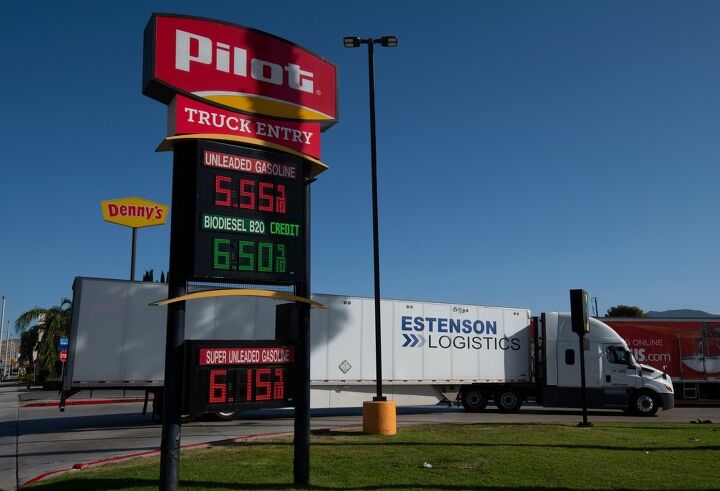
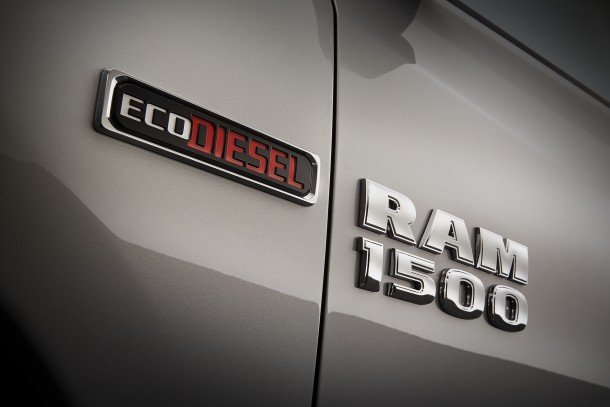
![Toyota's Hino Motors Confesses to Diesel Emissions Cheating [UPDATED]](https://cdn-fastly.thetruthaboutcars.com/media/2022/07/19/9150960/toyota-s-hino-motors-confesses-to-diesel-emissions-cheating-updated.jpg?size=720x845&nocrop=1)

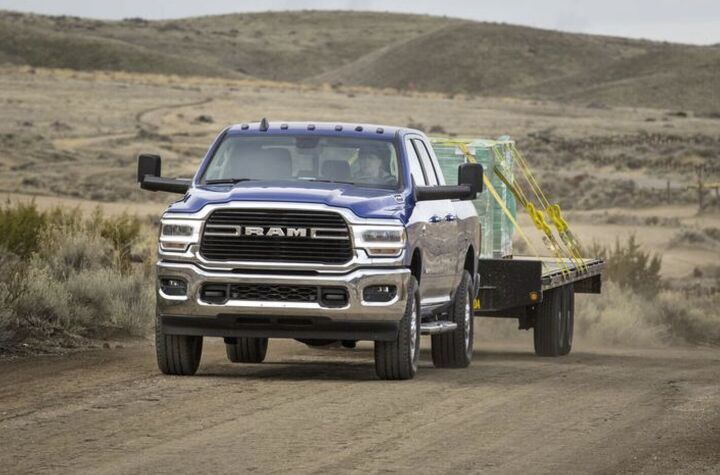


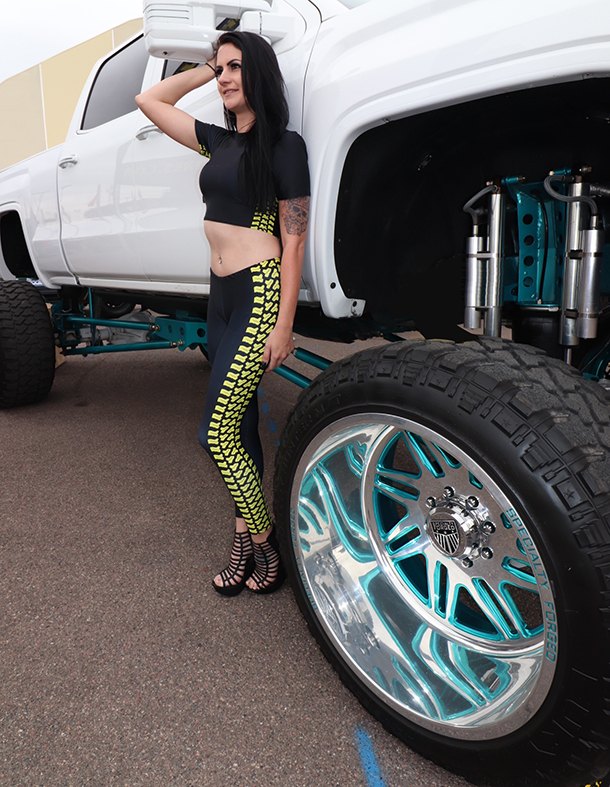
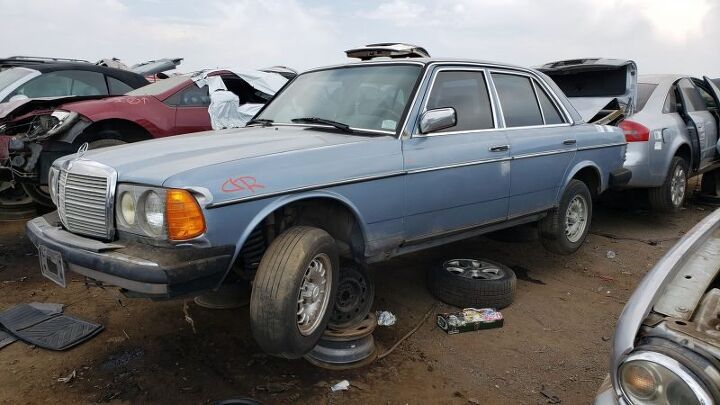
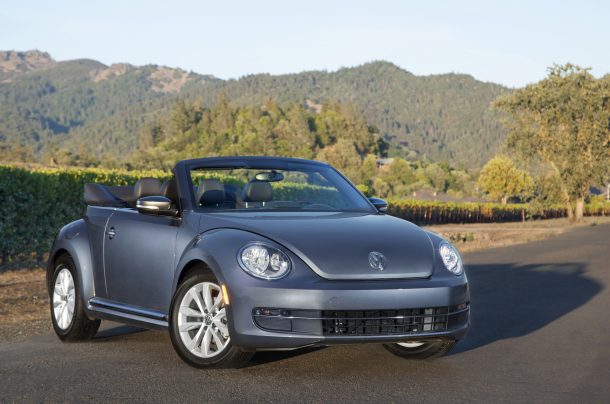

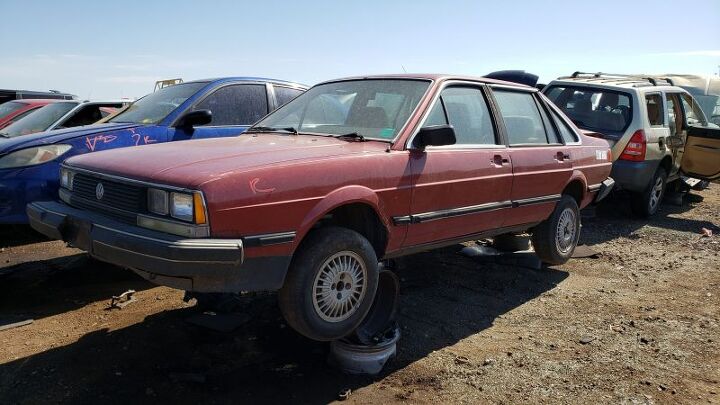


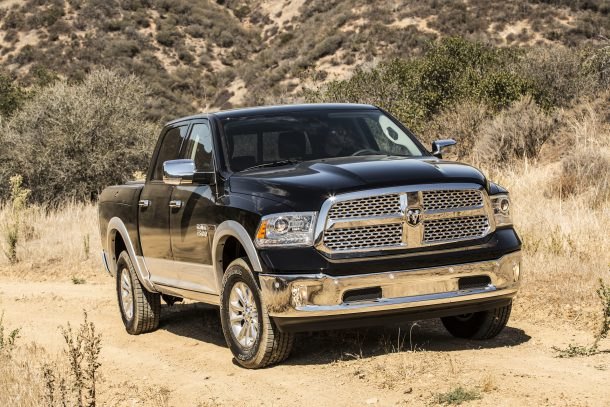

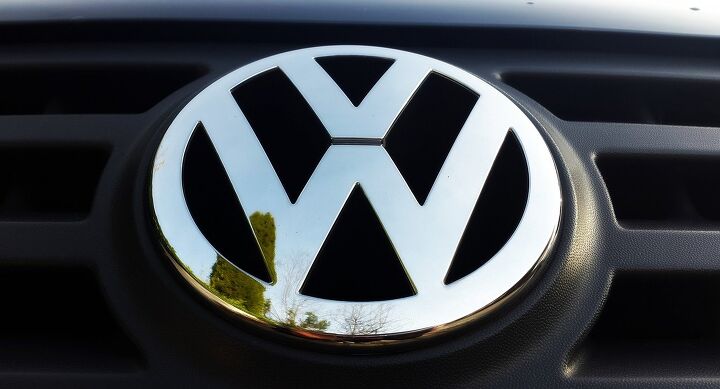


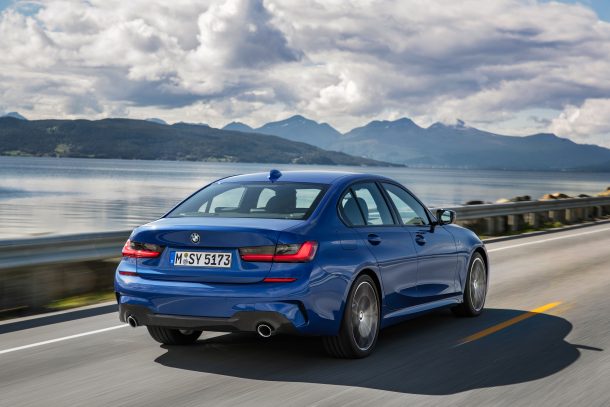
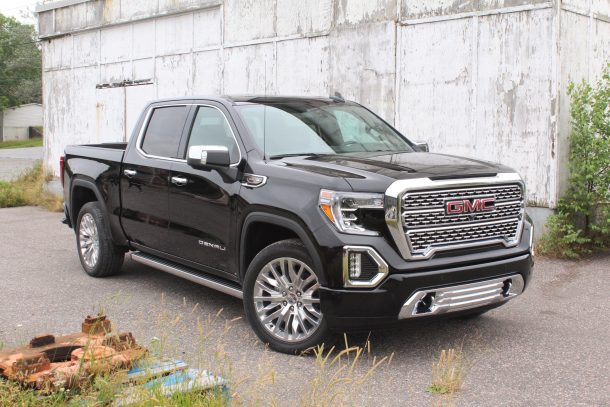



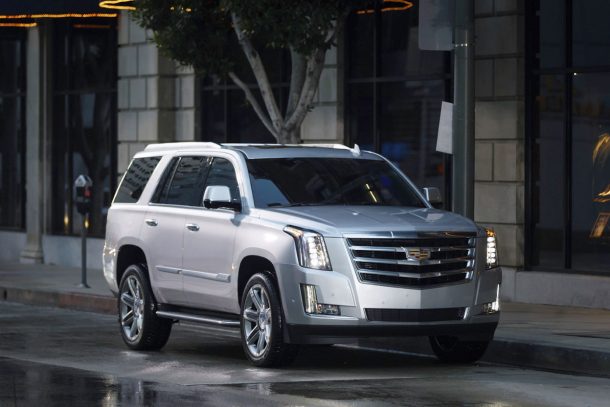

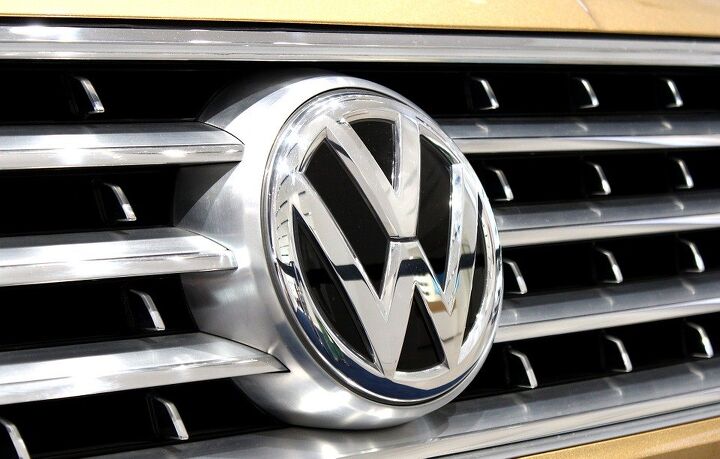
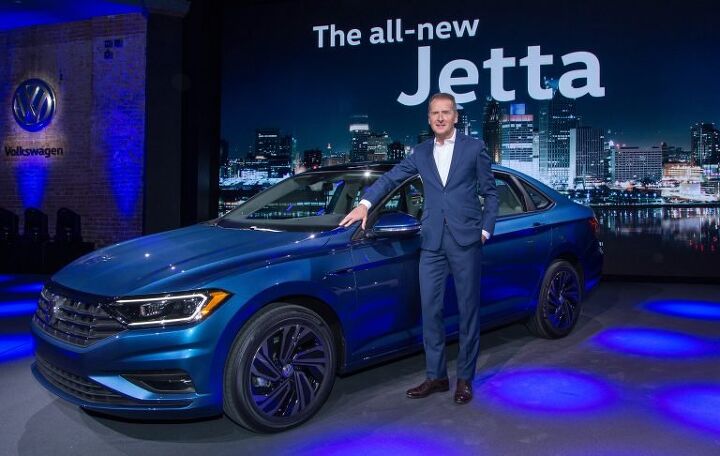
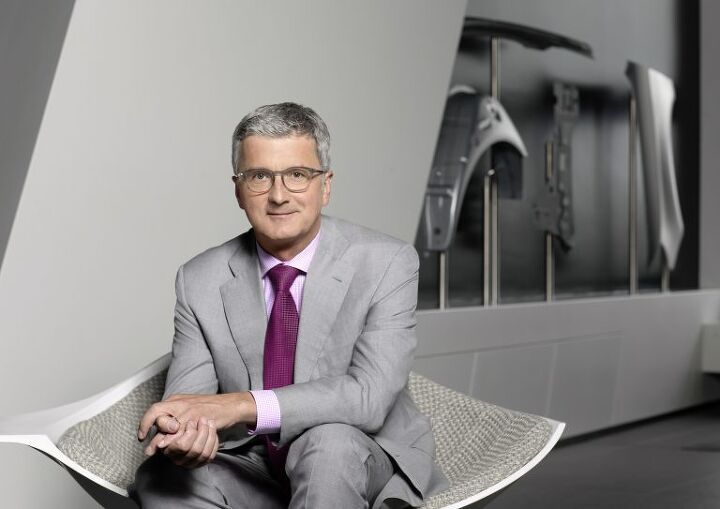








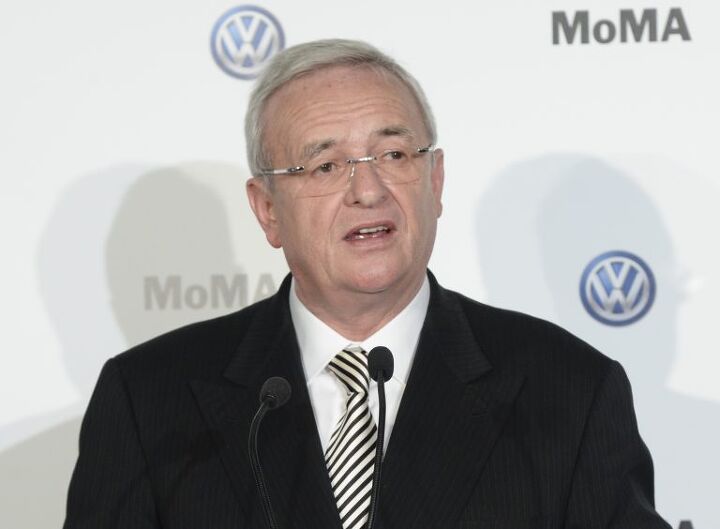







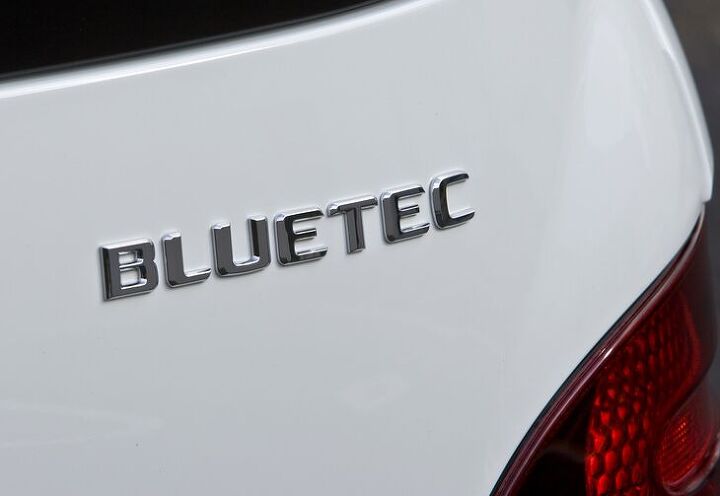

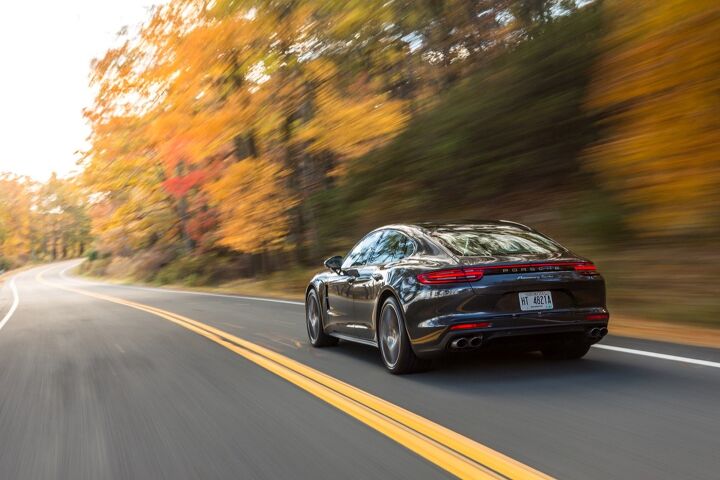



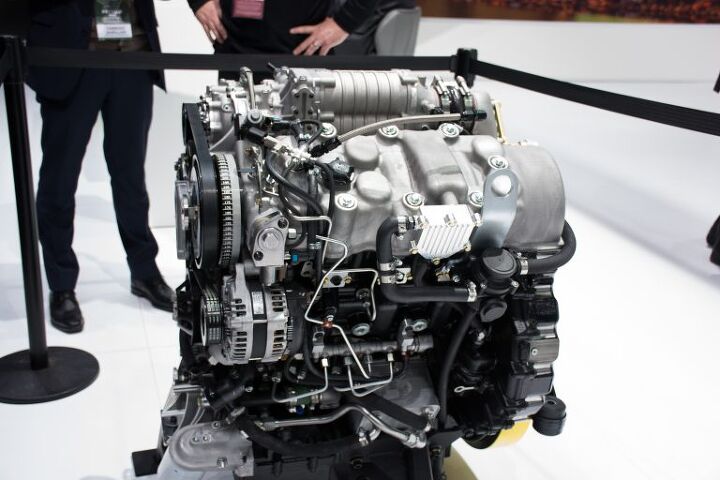
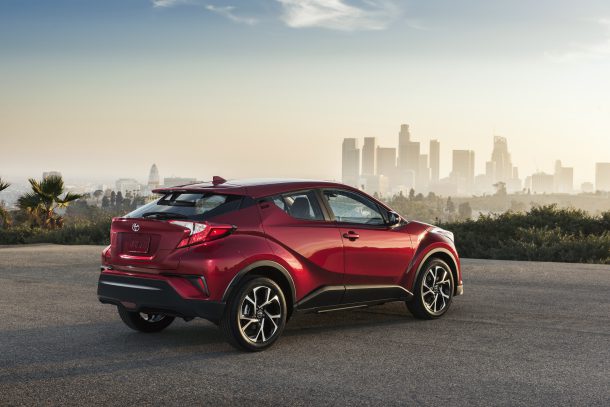
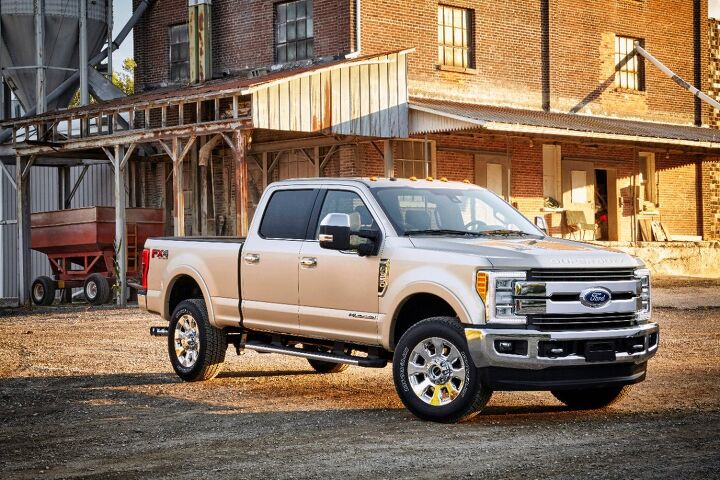













Recent Comments